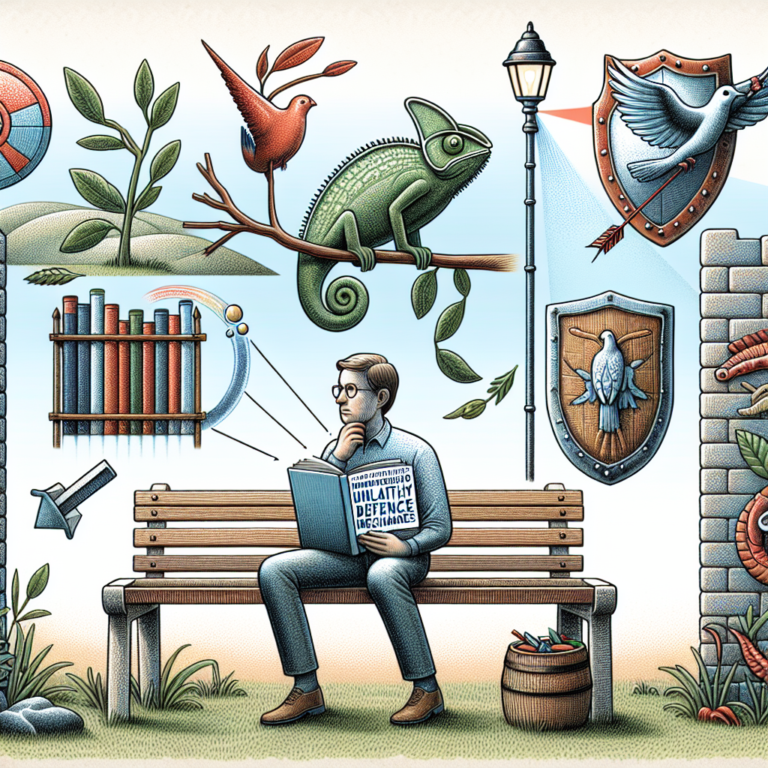
Introduction
In a world dominated by chatter, an unwavering belief persists: louder is better. For many, success is often equated with extroverted qualities—confidence, sociability, and vocal leadership. However, in the haze of this noise, one profound truth remains clear: introversion possesses an undeniable power. The Power of Introversion: Harnessing Quiet Strengths in a Noisy World reveals how the quieter, often overlooked strengths of introversion not only serve individuals personally but also enrich the communities and organizations they are part of.
With the rise of remote work and the necessity for innovative problem-solving, understanding how to channel introverted strengths is more crucial than ever. Let’s explore the innate talents introverts possess, the socio-economic implications of harnessing these qualities, and strategies to increase awareness of this quiet strength in a boisterous society.
Understanding Introversion
What is Introversion?
Introversion is often misunderstood as shyness or social discomfort. However, it is more accurately described as a personality trait characterized by focus on internal feelings rather than external sources of stimulation. Introverts typically recharge by spending time alone or in quiet settings, preferring meaningful one-on-one interactions over large group dynamics.
The Spectrum of Personality: Introversion vs. Extroversion
Understanding different personalities can break down misconceptions surrounding introversion. The Myers-Briggs Type Indicator (MBTI) categorizes individuals into 16 personality types based on four dichotomies. Introversion (I) and Extroversion (E) represent one of these dichotomies.
| Personality Type | Description |
|---|---|
| Introversion (I) | Prefers solitary or small group interactions; values deep connections |
| Extroversion (E) | Energized by social interactions; thrives in group settings |
This framework underscores that both personality types possess unique strengths valuable to society.
The Hidden Strengths of Introverts
1. Deep Focus and Concentration
Introverts excel in environments that require deep focus. Their propensity for absorption in tasks often leads to innovative problem-solving. The Power of Introversion: Harnessing Quiet Strengths in a Noisy World emphasizes how workplaces can benefit from introverted employees taking on roles that exceed standard expectations. A study from Harvard Business Review reveals that introverts have shown superior performance in work setups that require sustained attention and intricate analysis.
Case Study: J.K. Rowling
Best known for her Harry Potter series, J.K. Rowling identifies as an introvert. Her ability to paint vivid worlds through her writing showcases how quiet observation and deep focus lead to creativity. Rowling’s introverted tendencies allowed her to fully immerse herself in storytelling, creating connections with readers that extroverted approaches may not achieve.
Analysis: Rowling’s success affirms that introverted traits can lead to extraordinary achievements that resonate widely in a noisy world.
2. Empathetic Listening Skills
Introverts often possess excellent listening abilities. Their natural inclination to reflect before responding makes them more profoundly empathetic. This quality is not just beneficial on a personal level but significantly enhances collaborative environments.
Case Study: Barack Obama
As a well-known introvert, former President Barack Obama utilized his listening skills to navigate complex social and political landscapes. His reflective approach allowed him to connect with constituents and understand diverse perspectives, providing a model for leaders in all fields.
Analysis: Obama’s listening prowess exemplifies the dynamic capability of introverts to lead through empathy, creating an engaged and cohesive community despite external chaos.
3. Creative Problem-Solving
Introverts often approach problems from unique angles, allowing for innovative solutions. Their comfort in solitude facilitates deep thought, enabling them to generate ideas that may escape more social-minded colleagues.
Case Study: Steve Wozniak
The co-founder of Apple Inc., Steve Wozniak, is a quintessential introverted innovator. By embracing solitude to design and engineer high-quality computers, Wozniak’s inventive mind changed the technology landscape forever.
Analysis: Wozniak’s achievements highlight the innovative capabilities stemming from introverted thinking, proving that quiet minds can indeed catalyze technological revolutions.
4. Thoughtful Leadership Styles
Introverted leaders tend to adopt thoughtful and inclusive approaches, fostering environments that empower others. This leadership style often results in higher employee satisfaction and productivity.
Case Study: Marissa Mayer
As the former CEO of Yahoo!, Marissa Mayer utilized her introverted traits to create focus in a noisy corporate environment. Mayer’s leadership style emphasized individual contributions, leading to increased morale and performance within the company.
Analysis: Mayer’s approach illustrates how introversion can enhance leadership, contrasting with traditional extroverted norms yet proving effective in engaging teams meaningfully.
Strategies to Harness the Power of Introversion
1. Create Quiet Spaces
Organizations should cultivate environments conducive to the needs of introverted employees. This includes creating quiet spaces for focused work and structured time for brainstorming sessions that incorporate silence before discussion.
2. Foster One-on-One Interactions
Encouraging one-on-one meetings can help introverts express their ideas more fully, creating a space for their insights to flourish. Instead of relying on open meetings, structures that prioritize smaller group interactions can elicit greater participation.
3. Promote Values of Empathy and Listening
Encouraging a culture of listening and empathy helps highlight the essential qualities of introverts. Training initiatives that focus on active listening and understanding can enhance group dynamics.
4. Acknowledge Diversity in Communication Styles
Recognizing the various communication styles within teams increases awareness of the strengths introverts bring. This acknowledgment can foster respect and create an inclusive atmosphere where both introverts and extroverts can thrive.
The Impact of Introversion on Society
The influence of introversion extends beyond personal and professional realms, impacting cultural and societal dynamics. Here are several factors highlighting this influence:
| Area of Impact | Introverts’ Contribution |
|---|---|
| Innovation | Unique solutions to complex global challenges |
| Education | Cultivating thoughtful and engaged learners |
| Leadership | Establishing collaborative and empathic frameworks |
| Community Relations | Building strong, supportive networks |
Conclusion: The Quiet Revolution
In a world that often equates noise with success, The Power of Introversion: Harnessing Quiet Strengths in a Noisy World reveals a transformation. It inspires individuals to respect their introspective nature and acknowledge the valuable contributions introverts make. By leveraging these quiet strengths, communities and organizations can thrive, realizing that true power can often be found in silence.
The acknowledgment of introversion as a strength can reshape perceptions, spark a shift in organizational culture, and inspire a generation of leaders. Embrace the quiet revolution, for it is in the depths of introversion that powerful ideas and innovative solutions lie in wait.
FAQs
1. What are the main characteristics of introverts?
Introverts typically prefer solitary activities or small social gatherings, feel energized by spending time alone, think before they speak, and display an inclination toward deep, meaningful conversations.
2. Is introversion the same as shyness?
No, introversion and shyness are not the same. Introversion is a personality trait related to how one derives energy, while shyness refers to social anxiety and discomfort in social situations.
3. How can introverts succeed in an extroverted workplace?
Introverts can thrive in extroverted environments by seeking roles that align with their strengths, advocating for quiet workspaces, and establishing supportive one-on-one communication with colleagues.
4. Can introversion be developed or changed?
While personality traits are relatively stable, individuals can learn skills and strategies to navigate environments better suited for extroversion, thus enhancing their adaptability.
5. How can organizations value introverted employees?
Organizations can value introverted employees by creating inclusive cultures, recognizing diverse communication styles, providing quiet spaces, and encouraging deep listening, fostering environments where both introverts and extroverts can excel.
Enhancing Awareness
Advocating for the quiet strengths of introverts will not only enrich lives but also nurture a diverse spectrum of talents and perspectives essential to navigating today’s challenges. By harnessing The Power of Introversion: Harnessing Quiet Strengths in a Noisy World, we cultivate a society that celebrates both vocal bravery and serene strength in equal measure.















